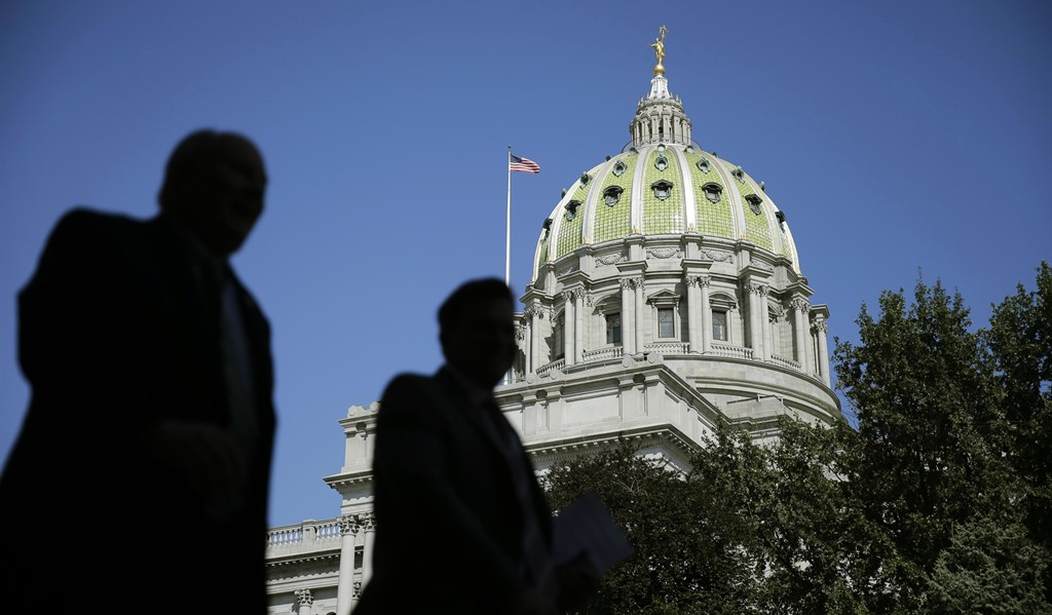A management consultant’s study on how to rescue the badly flagging Pennsylvania State System of Higher Education itself is fraught with deficiencies that fail to address the system’s core problems, says the president of the Allegheny Institute for Public Policy.
Not only is the July 27 report from the National Center for Higher Education Management Systems filled with edu-jargon that lacks specificity, it automatically removes from consideration some of the very things that must be done, says Jake Haulk (in Policy Brief Vol. 17, No. 39).
The consultant’s study says problems at the 14 state-owned schools boil down to the “inadequacies of the governance structure for coping with converging pressures.”
Among those “pressures” are combined double-digit enrollment declines that are projected to worsen, a dramatic increase in per-student spending at schools with the greatest declines, incredibly small class sizes and, thus, far more faculty than can be justified.
Additionally, the management report flags the State System’s latest union contract -- featuring $52 million in additional compensation and settled under strike duress -- as a far too generous package that the schools cannot afford.
But while the consultant’s explanations for some of the system’s problems are primarily focused on governance issues, they contain very few clear-cut action steps, Haulk says.
The report offers “a lot of governmentese-sounding items such as ‘adopt a strategic financing model that is better fit for varied circumstances,’ or ‘reorient the Board and Office of Chancellor toward greater responsibility for policy leadership’ (and) ‘retain and ensure stability,’” Haulk recounts. “Some specificity as ‘steps to take’ would be good.”
Recommended
But Haulk says one of the reports biggest failings is its recommendation of “what not to do” – “No institution should be closed; no mergers of any institutions; no attempt to undermine collective bargaining agreements or processes.”
“In other words, some of the dramatic actions needed to create a more robust and viable system are off the table, including taking a harder stance toward the faculty union,” the Pittsburgh think tank president says.
“It is a moral failing of the state to permit state employees to create financial and undue academic stress on students,” Haulk says. “If faculty members are unhappy enough to walk off the job, they should find a new job. …
“Public employees should not have the right to strike, period,” he says.
Haulk finds two other glaring omissions in the management consultant’s report.
First, there’s declining or non-existent entrance requirements at some of the 14 schools, which leads to remedial classes that downgrade the rigor of college coursework, lengthens the time to graduate and increases the dropout rate.
“It wastes a lot of time, it causes students to incur debt they cannot repay and it wastes tax dollars spent subsidizing students who have no business being in college,” Haulk says.
And, second, Haulk says the consultant’s report fails to directly address the “calamity” of Cheney University. Enrollment has fallen by half since 2007, it ranks dead last in the commonwealth with its 10 percent graduation rate (after four years) and its state subsidy of $18,000 per student per year is far higher than its peer State System schools.
Haulk says the State System’s problems most assuredly will have to be dealt with legislatively. That’s because there is no way the system’s governance can or will take the dramatic steps necessary to right-size the system or to insure that taxpayer dollars are spent wisely unless ordered to do so.
“It will be very hard,” Haulk concludes. “But until they are remedied, the, Pennsylvania State System of Higher Education’s problems will fester and grow worse with more inter-institutional rancor and more calls for tax dollars.”

























Join the conversation as a VIP Member